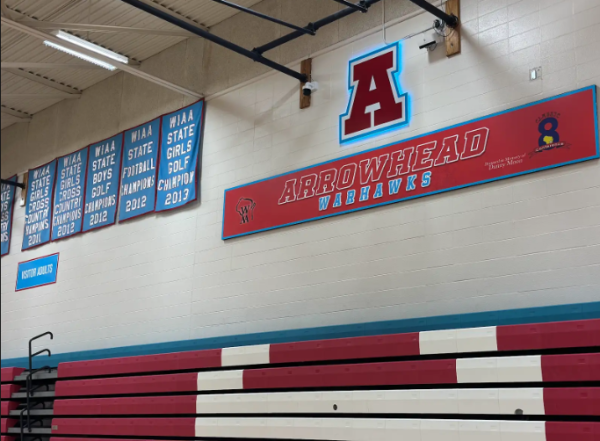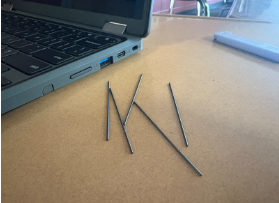What is Mock Trial?
The mock trial team recently—about two weeks ago—received their case for the year, and are “currently working through understanding all of the specifics leading up to the lawsuit so that we can begin strategizing and preparing for the trial,” says mock trial leader Oliver Lee, a senior at Arrowhead Union High School.
Formally explained, the State Bar of Wisconsin says that mock trial is “designed to develop and test critical thinking, argumentation, and public speaking skills while exposing students to the atmosphere of a real-life trial situation.” Its premise is a mock court case in which students must “prepare their case while practicing, participating in scrimmages, and performing in the regional tournament at the Waukesha County Courthouse in February.”
The Arrowhead district has a Mock Trial team. Mock Trial began in late September to early October. This year, mock trial has gained a membership of around 23 students.
While giving students the opportunity to practice research and speeches, mock trial also gives students a chance to get more acquainted with the law. This can attract all types of students, from aspiring lawyers to conscientious community members, or even actors.
Katie Herrmann, an English teacher and founder of mock trial at Arrowhead explains that the program is “such a beneficial, fun, and engaging opportunity for students.”
She says she created mock trial because she enjoys “watching students work together to learn how to create persuasive, logic-based arguments delivered with poise and prowess.”
Beyond developing skills in public speaking, critical thinking, and developing persuasive arguments, members of mock trial get exposure to real-life court cases. Developing arguments based on plausible events allow students to learn more about the court system than one may see in television shows or movies.
This year, students were given a fictitious court case involving “an employment discrimination/wrongful firing or of a college student,” says Herrmann.
Each year the type of trial is different to give students new aspects to research annually. Last year’s case was a criminal court case relating to a murder; this year’s court case, conversely, is a civil case.
Now that members have received the case, they move on to preparing. Per case, the mock trial members have two sides (plaintiff and defense). They then have to develop their cases.
Lee explains that in preparation “each side is developing their official theory (which will guide what they write for openings, closings, direct examinations, and cross examinations) and theme (a theme is a quick, catchy phrase that sums up the theory).” The mock trial team will then typically have around eight to ten scrimmages against other teams in a season.
As they move towards the regional tournament, Mock trial members will continue to practice and participate in scrimmages with the cases they prepare.





